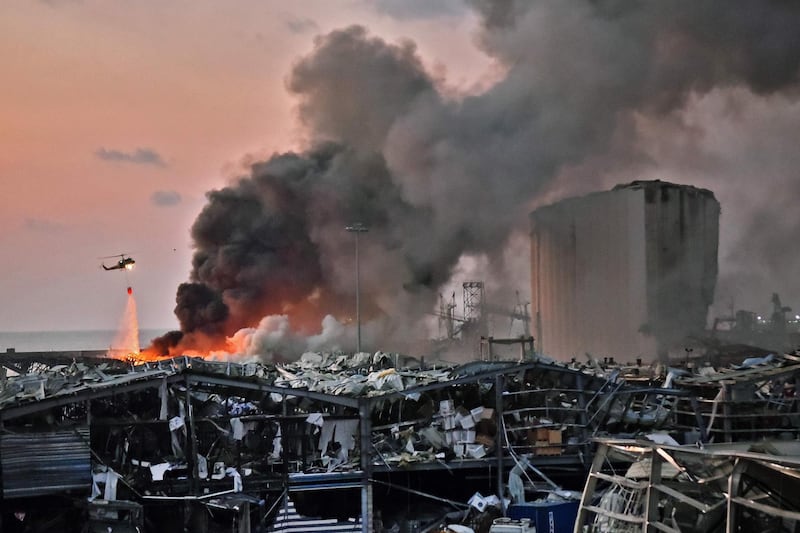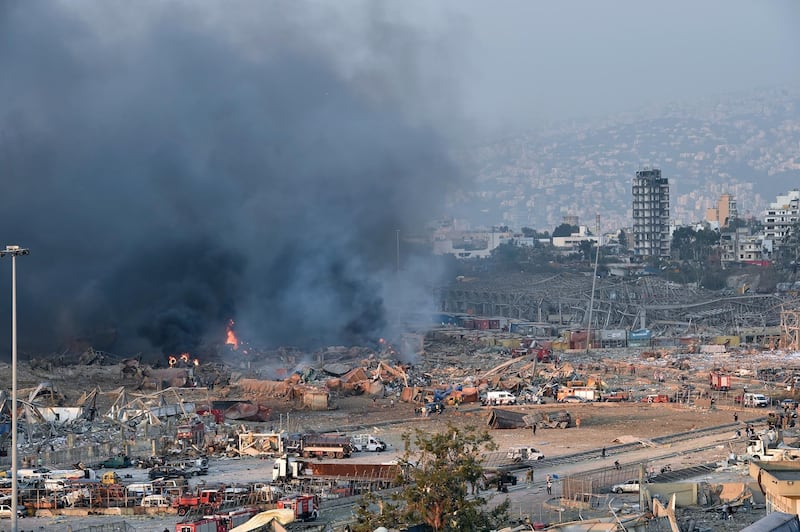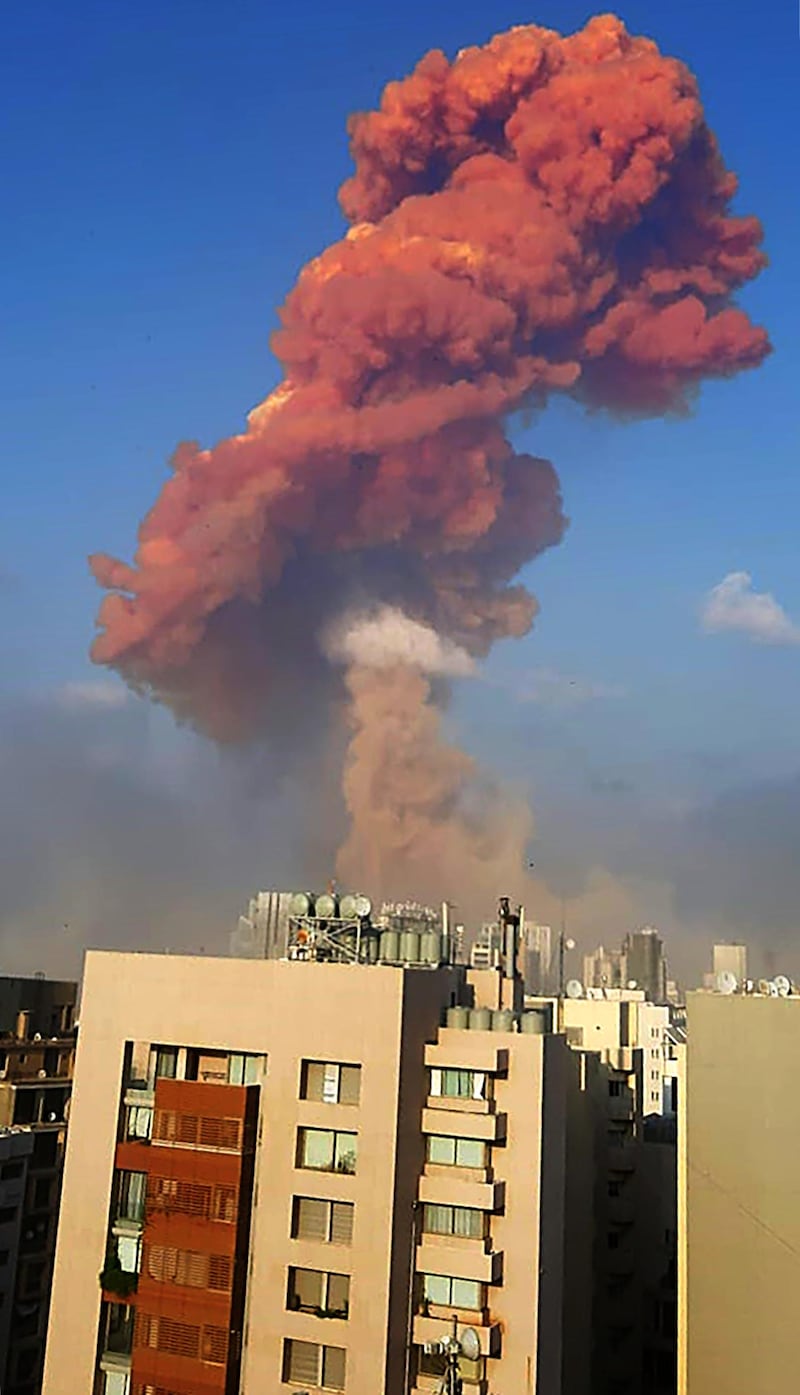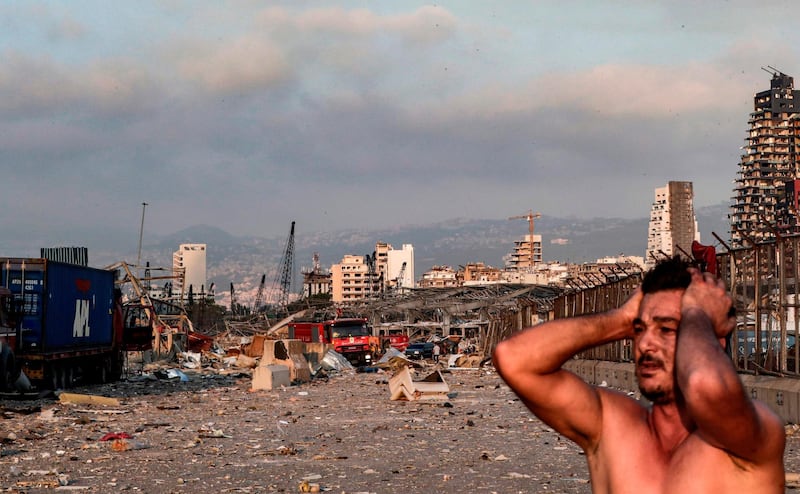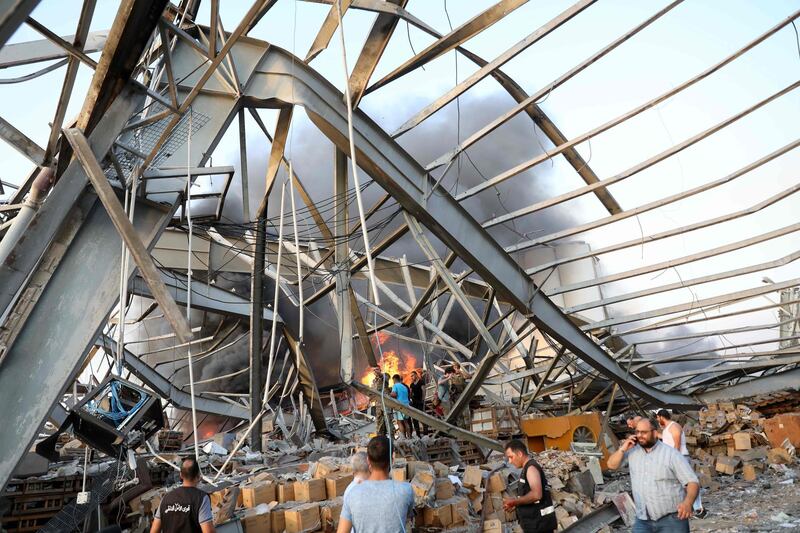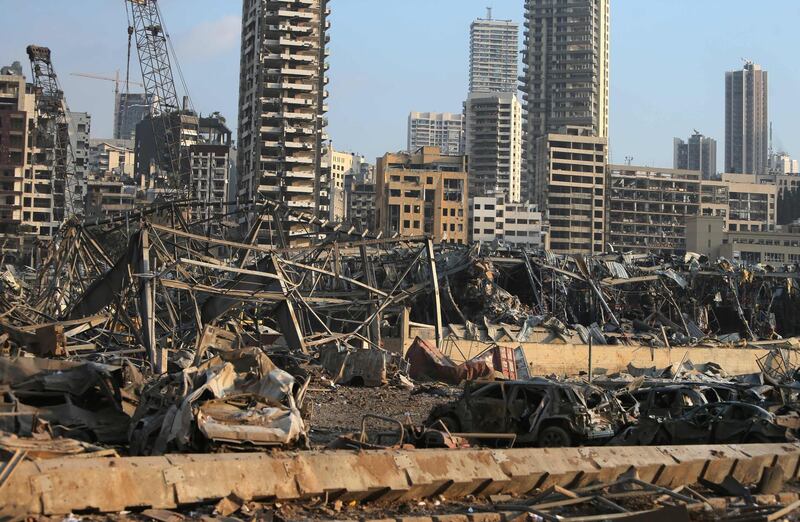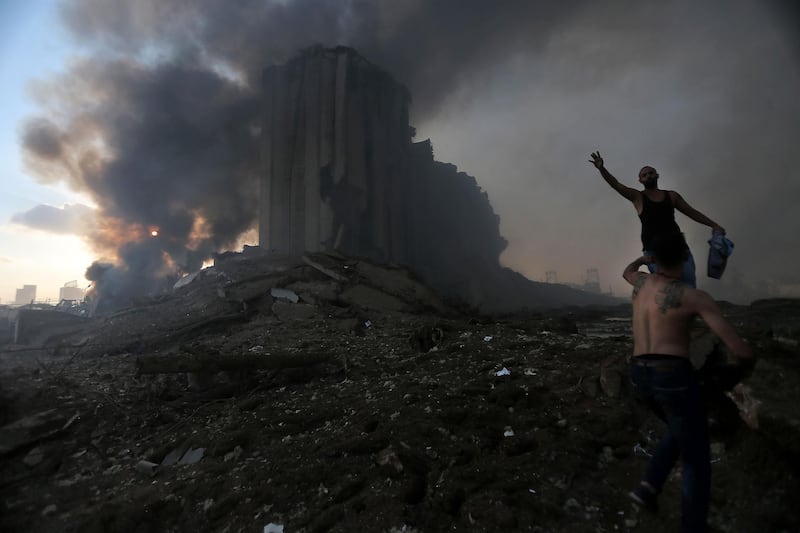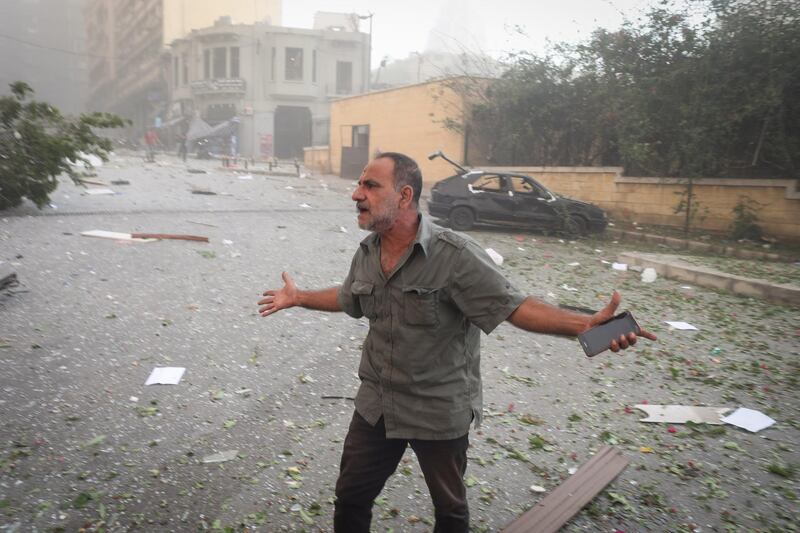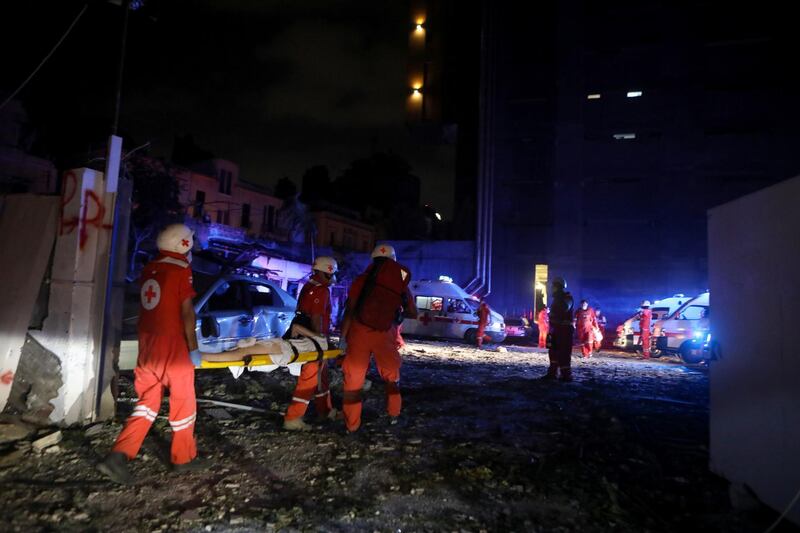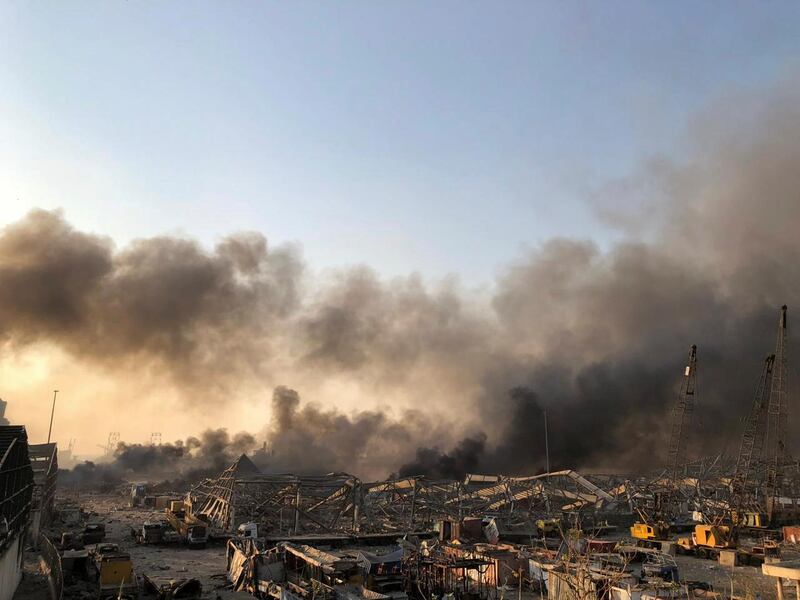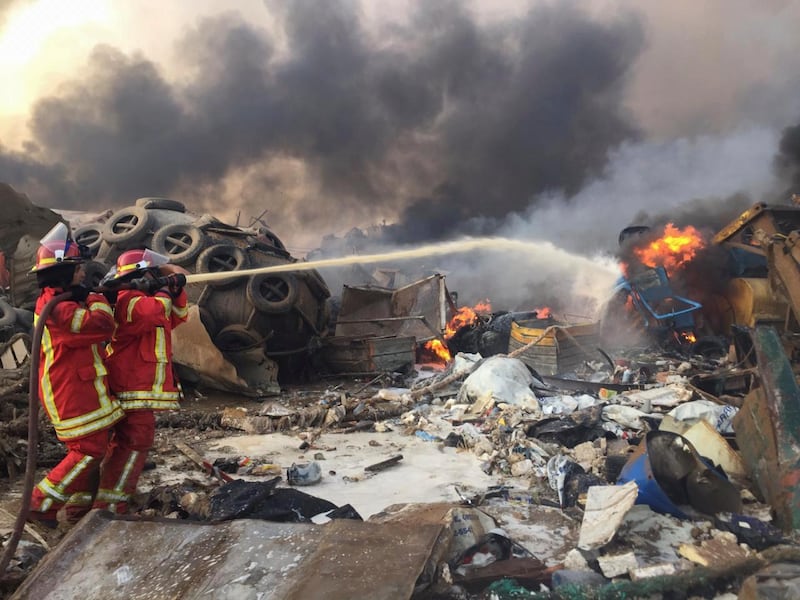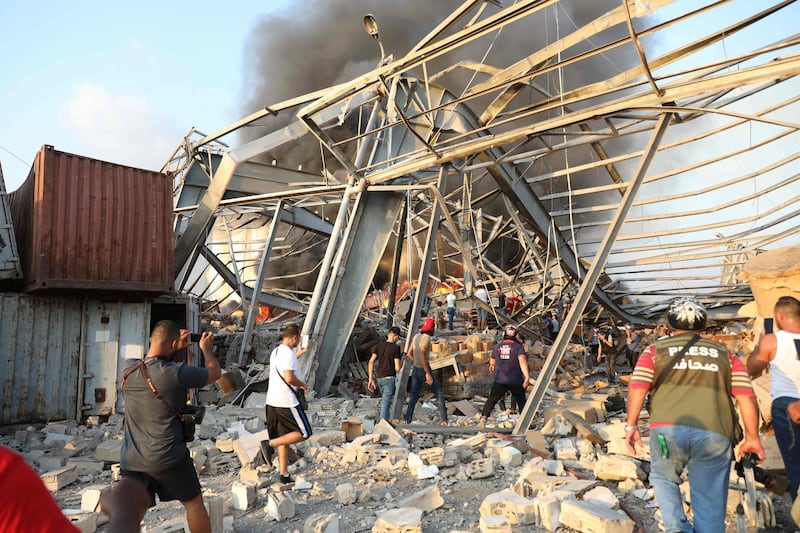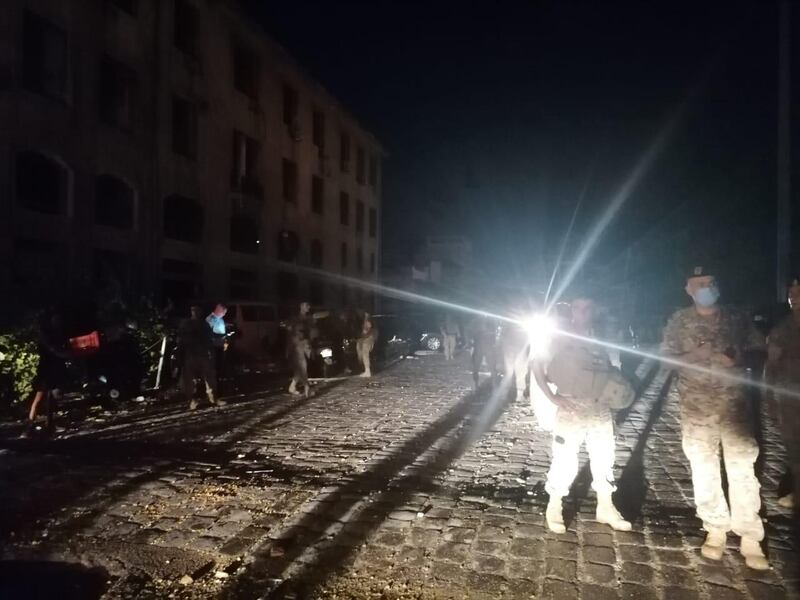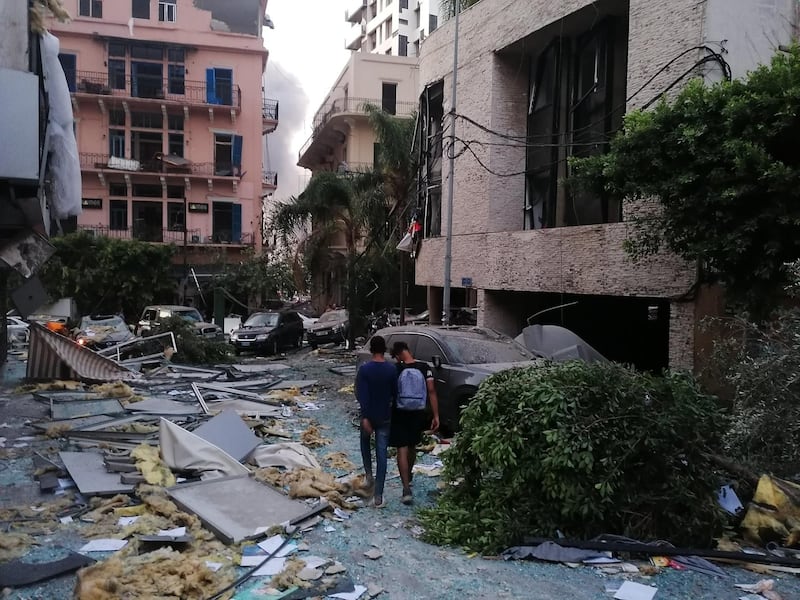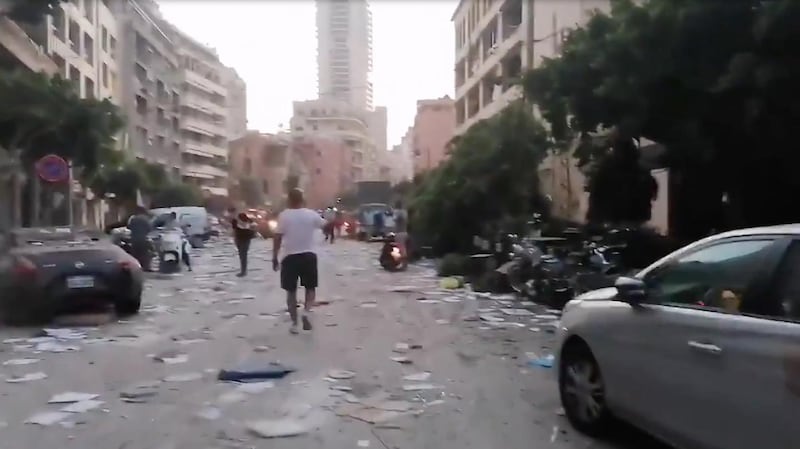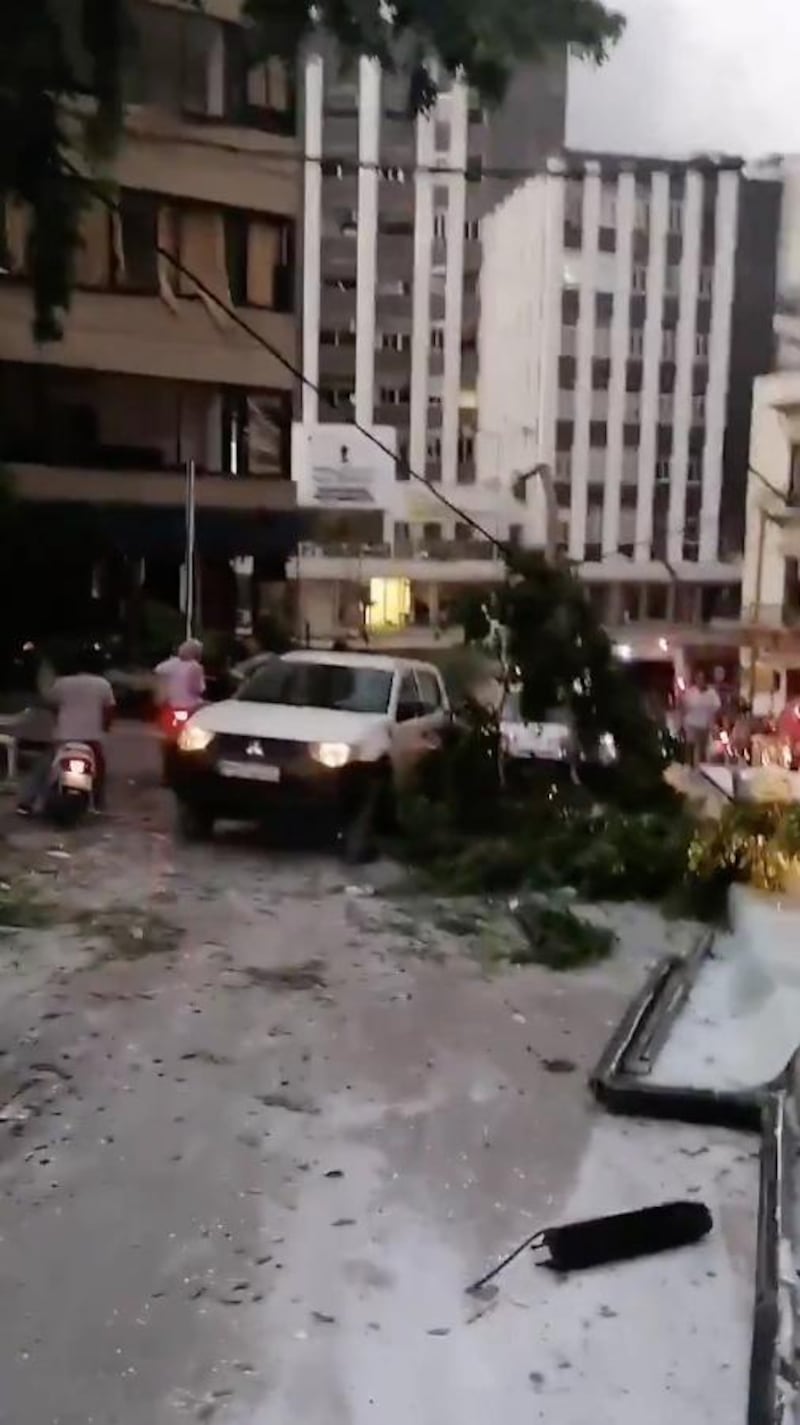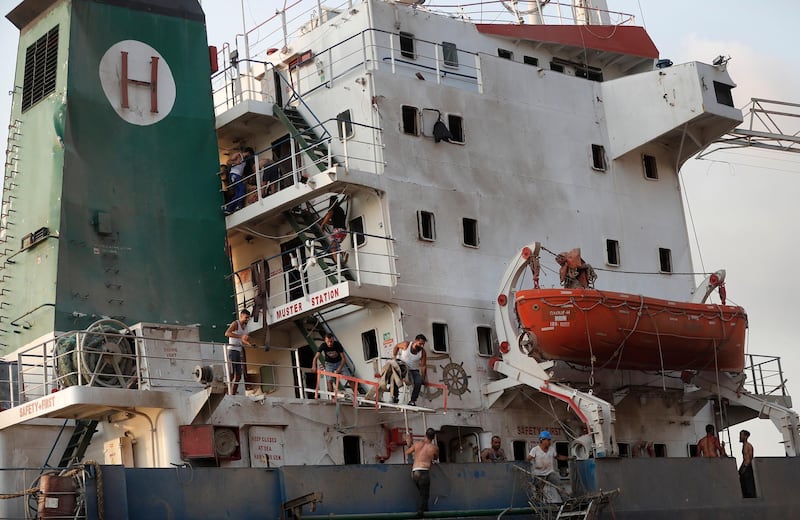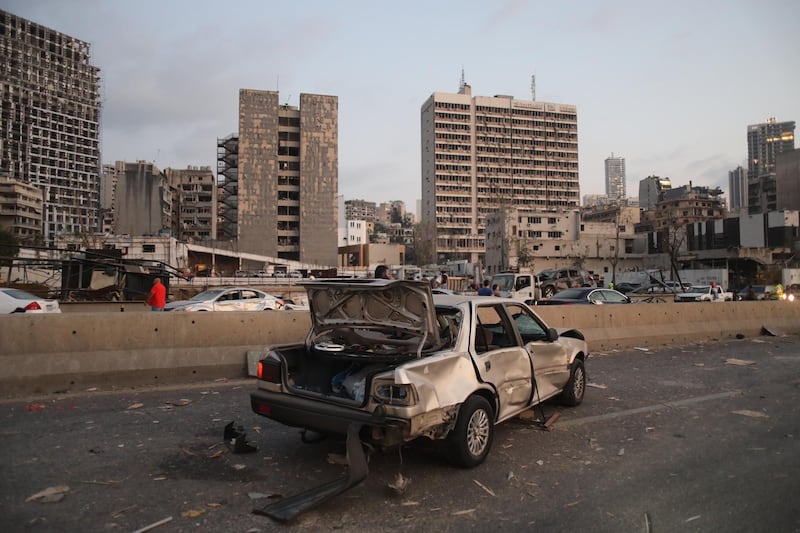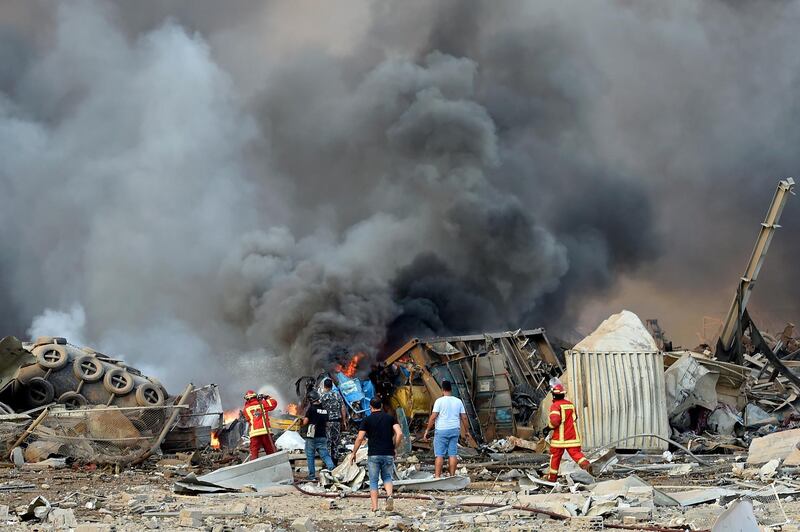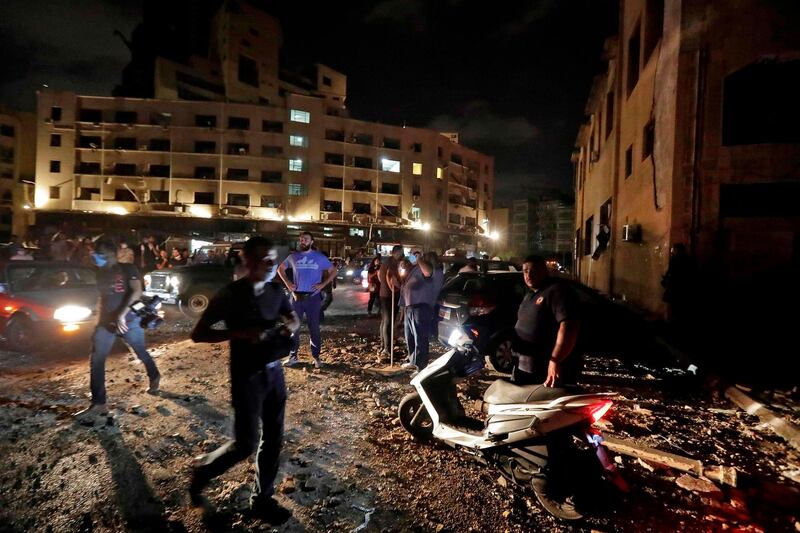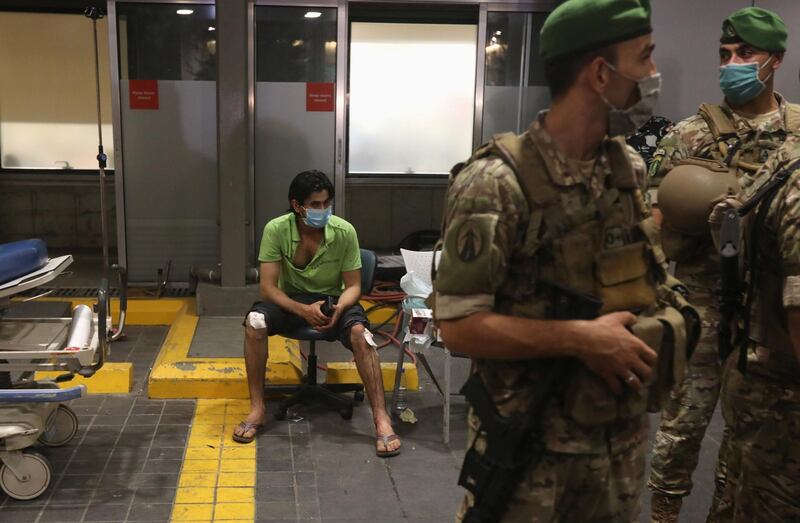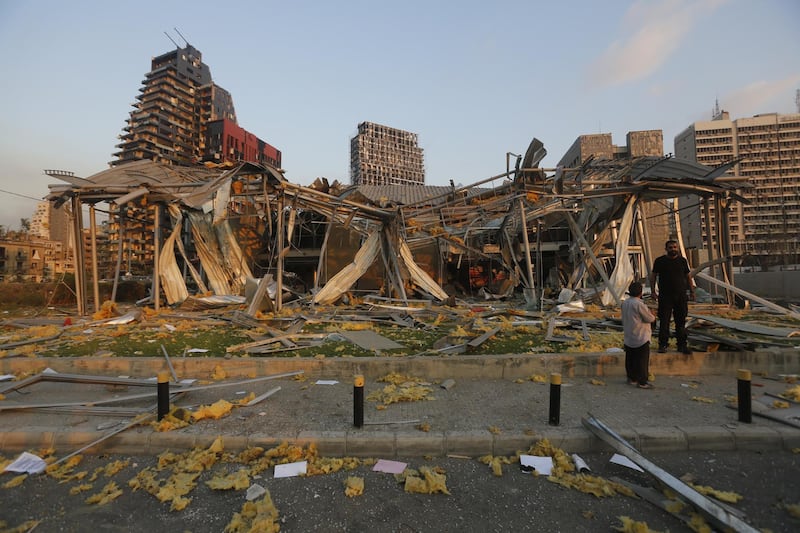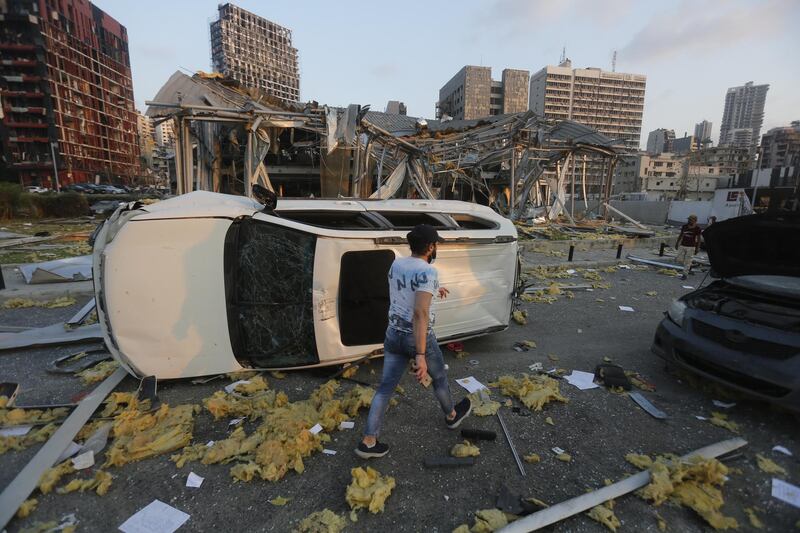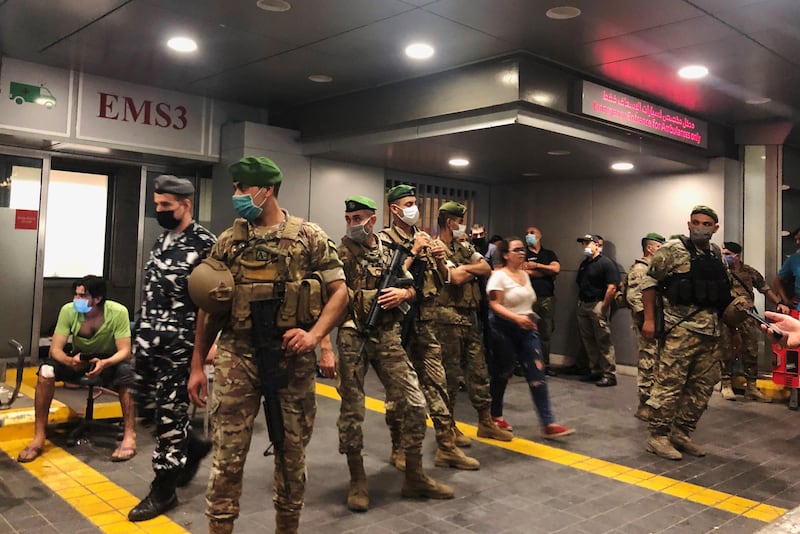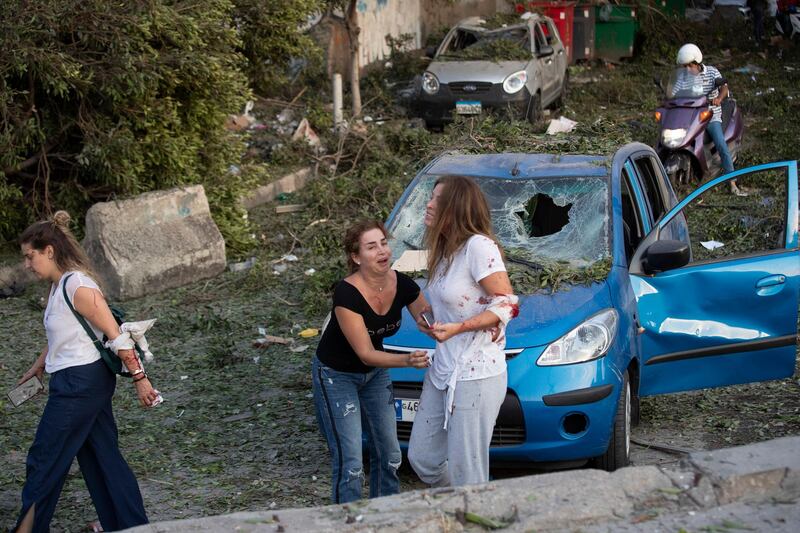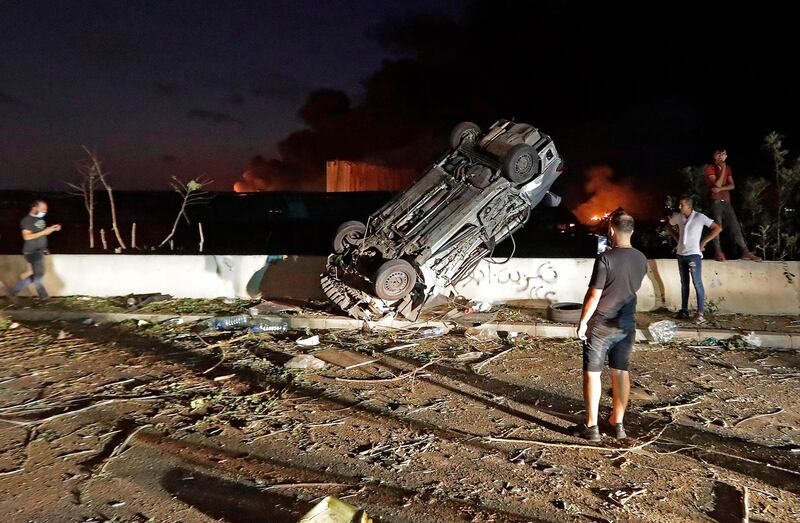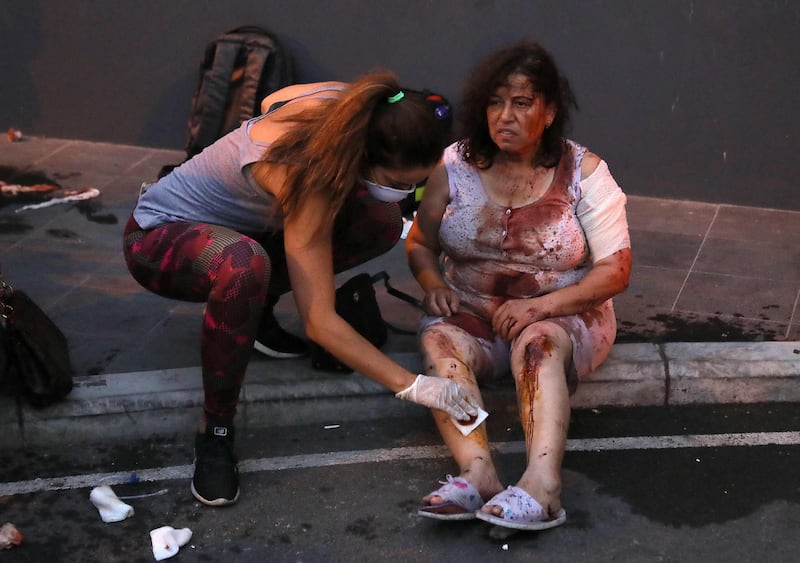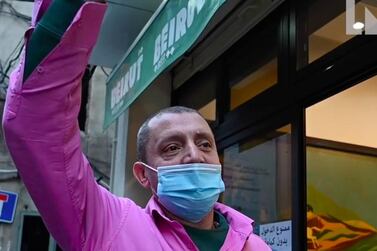The Lebanese judge investigating a huge explosion in Beirut in August charged caretaker prime minister Hassan Diab and three former ministers with neglect, making them the highest-ranking officials to be blamed for the blast.
As well as Mr Diab, a former American University of Beirut professor who became prime minister in January after mass protests against the political system, Judge Fadi Sawwan also pressed charges against former finance minister Ali Hassan Khalil and former public works ministers Ghazi Zeiter and Youssef Fenianos.
All four were charged with carelessness and negligence leading to death in the explosion at Beirut's port on August 4.
Mr Fenianos and Mr Khalil were previously sanctioned by the US for providing support to the Iran-backed Lebanese group Hezbollah, which Washington classifies as a terrorist group.
Mr Zeiter and Mr Fenianos will be questioned next week.
Beirut explosion as seen by people around the city
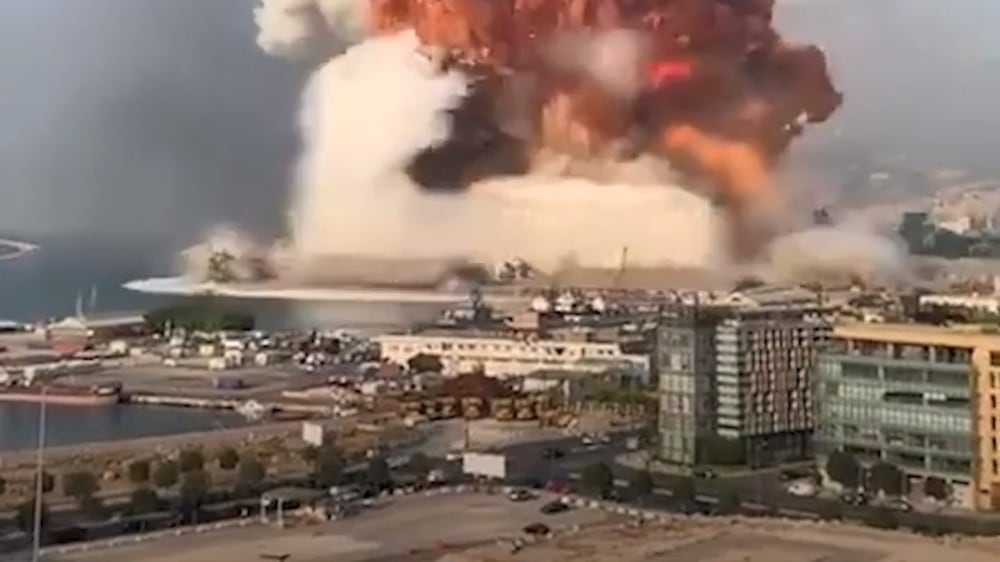
Four months after the explosion, results of the investigation have yet to be made public but about 30 other security officials and port and customs officials have been detained in the inquiry so far.
The explosion was caused by 2,750 tonnes of ammonium nitrate fertiliser stored at the port for years with the knowledge of officials who did nothing. The blast killed more than 200 people and wounded at least 6,500. The blast is considered one of the largest non-nuclear explosions yet recorded.
It is not clear who owned the chemicals or why they were stockpiled at the port for more than six years with the knowledge of the country's top security agencies.
Documents surfaced soon after the explosion showing that at least 10 times over the past six years, authorities from Lebanon’s customs, military, security agencies and judiciary raised the alarm that a huge stockpile of potentially dangerous chemicals was being kept with almost no safeguards at the port in the heart of Beirut.
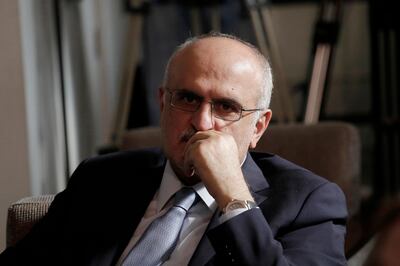
Since the material arrived in Lebanon in late 2013, four prime ministers held office.
Anger has been building up over the slow investigation, lack of answers and the fact that no senior officials had been indicted.
Mr Diab continues to function in a caretaker capacity while efforts to form a new government flounder amid political disputes.
Mr Zeiter was transport and public works minister in 2014, followed by Mr Fenianos in 2016, who held the job until the beginning of 2020. Mr Khalil was finance minister in 2014, 2016 and until 2020.
President Michel Aoun, in office since 2016, said he was first told of the stockpile nearly three weeks before the explosion and immediately ordered military and security agencies to do “what was needed”. But he suggested his responsibility ended there, saying he had no authority over the port and that previous governments had been told of its presence.
Former prime ministers Najib Mikati, Tammam Salam and Saad Hariri reportedly said that they were not aware of the existence of the material at the port.
Mr Diab said he was informed about the presence of the “explosives” only days earlier and planned to visit the site. He said that he cancelled his visit to the port after he was told that the material was fertiliser.
Blast investigators have so far focused on personnel at the Port of Beirut. Judge Sawwan said he has set next Monday, Tuesday and Wednesday as dates for interrogating the four as defendants.
The charges could set a precedent for judges to prosecute former and current ministers accused of wrongdoing, said Nizar Saghieh, co-founder of the local watchdog Legal Agenda. They had so far benefited from immunity against prosecution for decisions made in their line of work, which is granted by the Lebanese constitution.
“So far, immunity has only served to shield ministers from any responsibility, turning them into irresponsible officials.” Mr Saghieh said.
Last month, Judge Fadi Sawan had asked Parliament to prosecute 10 ministers and former ministers. Three of the 10 were charged today.
“He seems to have changed his position. This is positive,” Mr Saghieh said, pointing out that it was up to the judiciary to interpret how broad the scope of immunity should be.
The charges could open the door for other high ranking officials to be prosecuted for corruption and other charges.
– Additional reporting by agencies
